International terrorists smuggled “invisible bombs” into Australia used in an attack on Sydney’s Israeli Consulate, detectives have revealed after 36 years.
One of the most feared terrorist groups at the time, “15 May”, is long disbanded but counter-terrorism police believe three men and a woman living in NSW still hold the secret about who planted the bombs at the consulate and the Hakoah Club in 1982.
“They are two acts of international terrorism in Australia that have never been solved which we take extremely seriously,” Detective Chief Inspector Caroline O’Hare said.
Police have now linked four locals directly to the Hakoah Club bombing
The country’s first terrorist cold-case investigation has linked the bombs with two used by the Iraq-based group to terrorise the skies by planting two bombs on Pam Am flights and in a major breakthrough, have confirmed that 15 May was capable of making “invisible bombs”.
“May 15 invented the “invisible bomb” which could not be detected by authorities and security at the time,” Inspector O’Hare said.
“Bomb makers leave a signature and it’s that signature that has been identified here and the components are the same as the bombs on the flights.”
It was only because of the incompetence of the terrorists that no-one died and only two people were injured in the attacks.
The Israeli Consulate was in the then-prestigious Westfield Towers on William Street and Bondi’s Hakoah Club was packed with athletes preparing for the Maccabiah Games.
The cold-case investigation, named Operation Forbearance, was triggered after research by the NSW counter-terrorism command’s discovered intelligence that a number of convicted terrorists overseas were alleging the bombings had been supported by Sydney locals who were still living in NSW.
Police have now linked the four locals directly to the Hakoah Club bombing.
“We believe the attack on the consulate was part of the international arms of the operation and we believe the Hakoah Club was done by a local element but linked,” Insp O’Hare said.
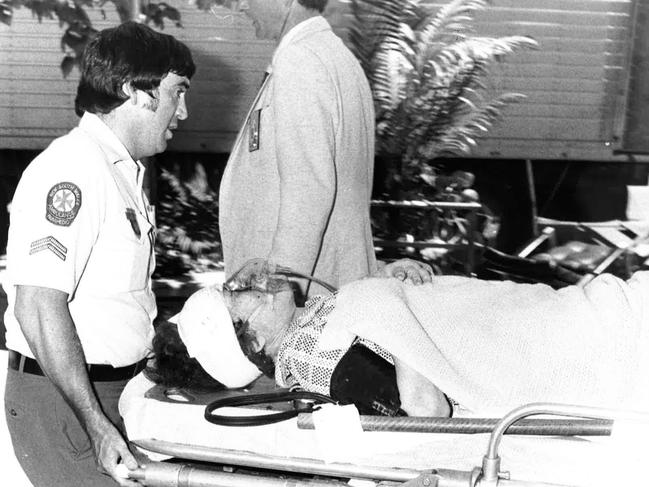
The bomb that went off in the stairwell of the consulate’s fire exit was followed three hours later by the bomb that blew up in the boot of a Valiant parked outside the Hakoah Club on December 23.
The car bomb failed to detonate properly and the timing device was thrown clear almost intact.
The device, cased in epoxy resin material about the size of a matchbox, was identical to one used to detonate a bomb on a Pan Am flight to Honolulu in August 1982, killing a teenage boy and injuring several other passengers.
A few days later, an identical device was found in another Pan Am plane while it was being cleaned in Rio de Janeiro.
It is believed that notorious terrorist Mohammed Rashid, who established the pro-Palestinian 15 May (named after the date in 1948 when the Arab-Israeli war began) [and was convicted of planting the bomb on the Honolulu Pan Am flight, was not in Australia at the time of the 1982 bombings.
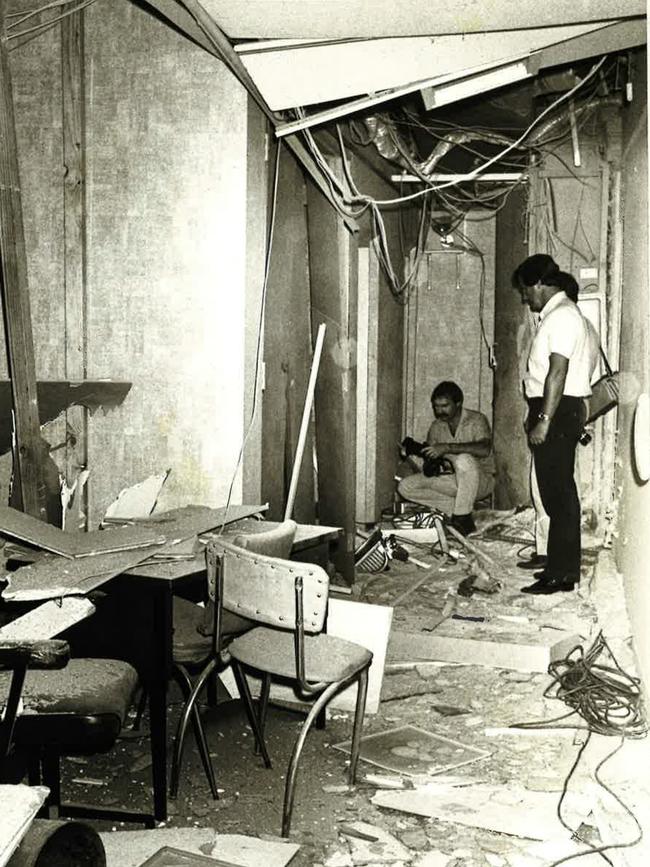
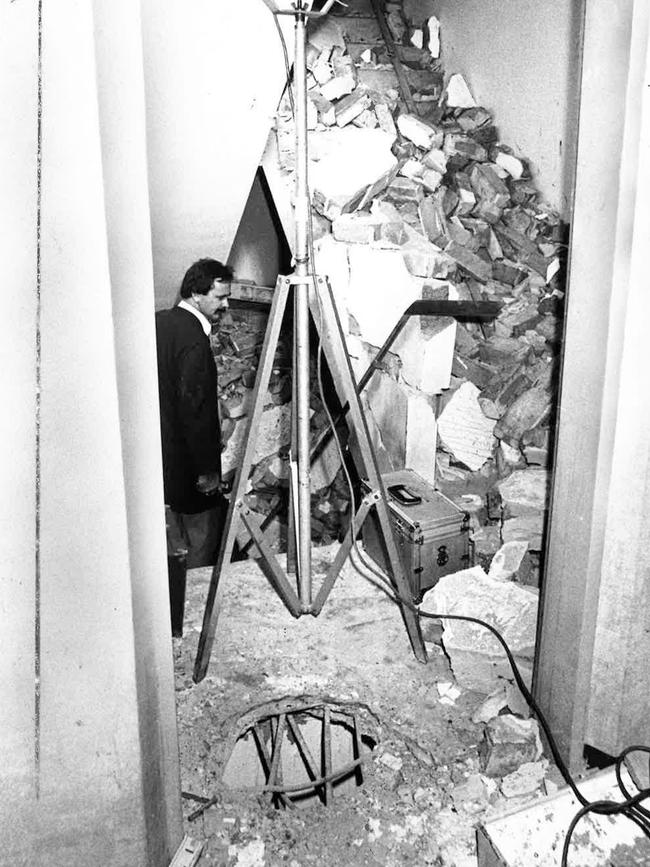
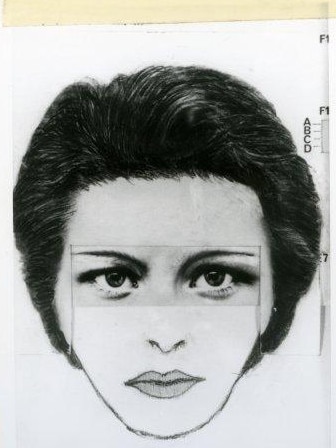
He has been co-operating with authorities around the world.
Whoever smuggled the bombs into Australia has long gone but the four locals are still here hiding their secrets.
The three men and a woman, who would now be aged in their 60s and 70s, were involved in buying the Valiant from a car yard on Parramatta Road, Burwood. The woman drove it out of the car yard two days before the bombings.
Detectives believe their old allegiances will have weakened.
“There are people who are known to us and 36 years down the track they don’t have the same allegiances and alliances,” Inspector O’Hare said.
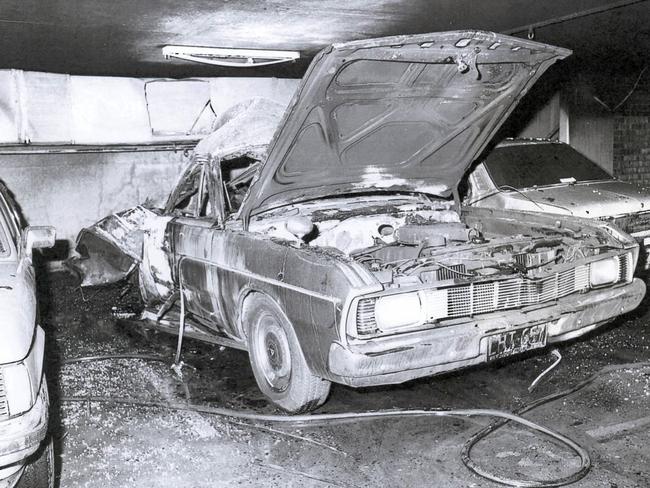
The number plate found on the car at the time of the bombing had been taken from a similar vehicle stolen from Kogarah and found burned out at Greenacre.
“These people might be on the fringes of the bombing or they might have been intimately involved,” Detective Inspector David Gawel said.
“It might keep them awake at night and this may be an opportunity for them to come forward.
“International acts of terrorism in those days didn’t happen every day.
“There would have been a lot of fear in the community and if those people were able to blow up two buildings in one day, there would be general fear of them which has gone now.”
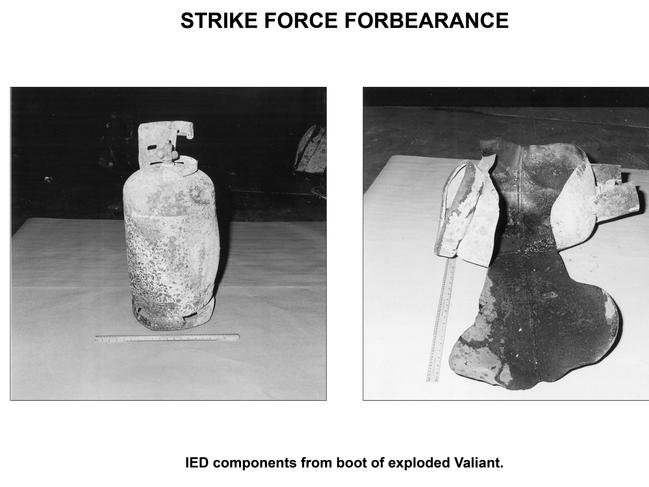
Police believe the motive was political and not religious with tensions around the world after Israel invaded Lebanon. They were heightened after the Israeli military in September 1982 allowed a right-wing Lebanese militia to enter two Palestinian refugee camps in Beirut with the massacre of hundreds.
“Hindsight is 20/20 and what was untidy at the time is now very clear,” Inspector Gawel said.
There is still a $100,000 reward for information relating to the consulate and Hakoah Club bombings.
